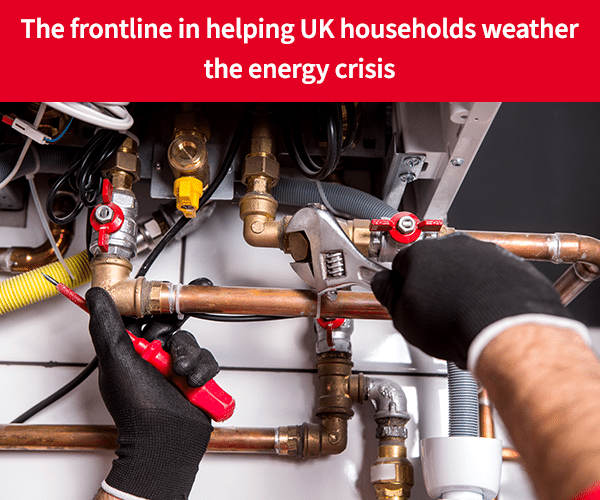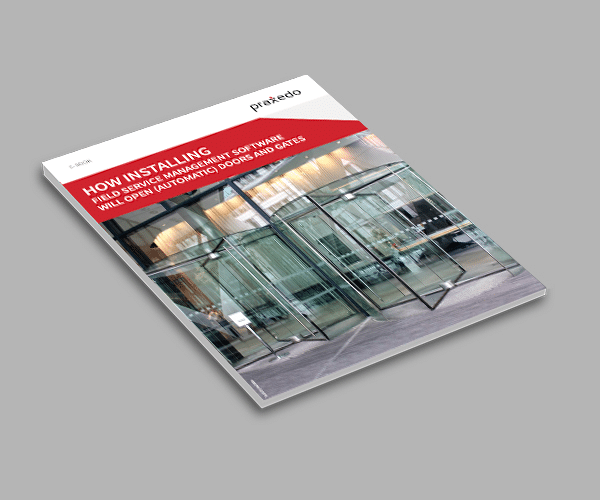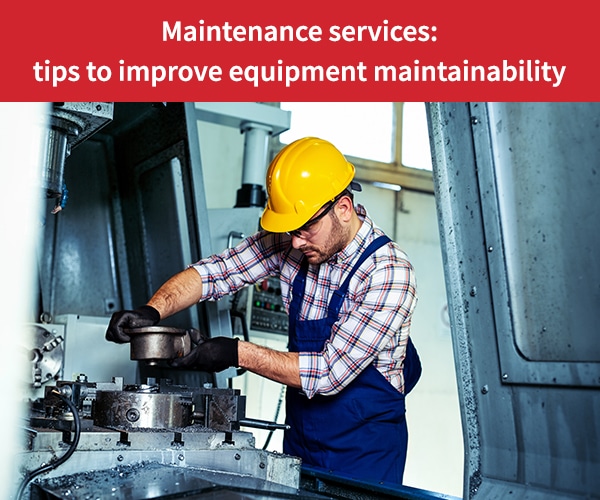
- Productivity
- Field Service Software
The frontline in helping UK households weather the energy crisis

The UK energy crisis, which began in 2021, has deepened with the raise on the energy price cap on 1 April, causing average energy bills to surge by over 50%. The energy crisis has spurred many households to look into ways to reduce the amount they are paying towards their energy costs. The need for plumbers and domestic heating and energy system installers has never been greater as households look to implement measures to mitigate rising bills.
Upgrading heating systems
In mid-2021, before gas prices began rising, the economics “didn’t stack up” for a purchase of a heat pump system, compared with a new gas boiler. Gas prices were roughly four times cheaper (on a pence per unit basis) than electricity. Renewed analysis in March 2022 reveals that electric heat pumps now show “significant running cost savings” versus gas boilers.
Heat pumps investment return is now positive with UK government heat grant. According to Baringa installing an air-source heat pump (including additional costs for insulation retrofits) in a typical three-bedroom house in 2022, will pay for itself over 10 years, with the Boiler Upgrade Scheme due to launch in April. The Boiler Upgrade Scheme, launching in April 2022, is a new UK Government grant of £5000 for low-carbon heating appliances, which replaces the Clean Heat Grant.
Installing solar PV panels
The UK uses gas to generate electricity, which is driving up electricity bills as well as gas. A rooftop solar photovoltaic (PV) system produces clean electricity for an individual household or property. Any that is not consumed by appliances (loads) during the day is exported to the grid. At little extra cost, households with hot water storage tanks or immersion heaters can also install equipment that uses any surplus solar energy to heat their water.
The cost of installing solar panels as well as other low carbon energy technologies and energy efficient technologies, including heat pumps and insulation, has been further reduced by the introduction of zero VAT in chancellor Rishi Sunak’s Spring Statement, from 1 April 2022. UK trade association Solar Energy UK said the “common sense” move by the treasury will encourage greater uptake of zero carbon technologies “in the face of an energy security crisis and climate emergency”. In the case of solar the group said it will improve the pay back for many consumers “who may be on the fence.”
Other more affordable options
The reality is that for many UK households investing in a heat pump system or solar installation requires an outlay of several thousand pounds, even with grants and tax breaks. These solutions are not applicable to every home either, since different building stick, ages and designs make it difficult to retrofit heat pumps effectively and can prevent solar panels from being installed on some properties.
Other, more affordable, options to reduce energy for heating demand within homes include:
Radiator upgrades
It can make sense to replace radiators along with a boiler upgrade (replacement), since carrying out all these works at once is less disruptive. But in some circumstances replacing old radiators for new can improve energy efficiency, with modern rads up to 50% more efficient than their year 2000 counterparts.
Modern radiators are designed to channel water more efficiently, with using less hot water to come into contact with more radiator surface space. Radiator overhaul can also include fitting thermostatic radiator valves which allow the occupier to adjust radiator temperature in each room, leading to better efficiency.
And if replacing older rads is not an option, booking in a visit by a plumber to flush out old radiators and pipes to get rid of sediment that builds up over time, can help the heating system run more efficiently.
Insulation
In 2018 the English Housing Survey found that only 38% of homes had loft insulation levels of 200mm or above and only 50% had cavity and/ or wall insulation. While newer housing, built since the 1970s and new build properties, include better measures to improve the energy performance of houses, the majority of UK housing stock is older and often draughty.
Free loft and cavity wall insulation, or grants towards it, are available from some energy suppliers under the Energy Company Obligation (ECO) scheme, while people on certain benefits may be able to get a grant for insulation, or a new boiler, through the Affordable Warmth Scheme.
Building Regulation changes
Beefed up Building Regulations are being introduced this year to expand upon existing energy efficiency measures within existing homes, with the aim of reducing energy use and carbon emissions during home improvements.
For existing homes uplifts to Part L & Part F of the Building Regulations have set new minimum standards for fabric efficiency. These include a requirement for new or replacement heating system design to accept low-carbon heating in future, including integrating the latest Ecodesign appliance benchmarks. One measure, contained within Part L, is the requirement for a maximum heat producing appliance flow temperature of 55°C for both new and replacement heating systems.
Impact on demand for domestic energy and heating services
As UK households look at ways to reduce their energy costs, many will be looking to implement measures like one or more of the above, placing unprecedented demand on plumbing and heating firms for their services. Plumbers are the most in-demand group of trades in Britain.
Demand is only likely to continue to increase as homes opt for measures to reduce energy costs over the coming months as there has been no indication that heating and energy costs will fall.
This is placing the domestic energy and heating installers sectors under pressure, where many companies are already facing a shortage of engineers with the skills to carry out some installations or associated activities, such as maintenance, checks and repairs.
Giving plumber and heating engineering fleets an efficiency boost
One solution for providers of domestic heating, plumbing and energy systems and services is to invest in technology that make fleet operations run more efficiently and smoothly. Field service management software and applications can help employers produce engineers’ schedules that maximise time engineers are carrying out jobs, minimising time travelling between jobs, achieving fuel savings too.
These types of digital tools span service technician scheduling software and also work order tracking software applications, which can speed up invoicing and billing processes. Digitising job sheets enables them to be updated in real-time so completed jobs can be processed and invoiced for more quickly and efficiently.
Our similar articles.
-
- Optimization
- Field Service Software
[Ebook] How installing field service management software will open (automatic) doors and gates
April 12, 2022 -
- Maintenance
- Technologies
- Productivity
- Optimization
- Productivité
- Work orders
How to optimise equipment maintainability
January 14, 2021 -
- Software
- Productivity
- Optimization
The Benefits of Travel Route Optimization for Field Service Companies
August 12, 2021


